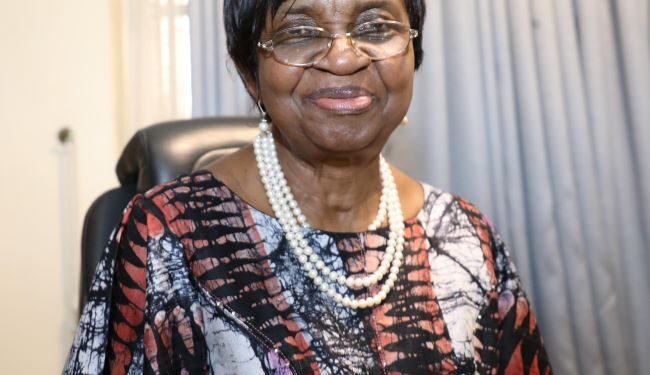The National Agency for Food and Drug Administration and Control (NAFDAC) has once again issued a stern warning to Nigerians regarding the hazardous practice of using dangerous chemicals to preserve food items.
Specifically, the agency has emphasized the dangers associated with dichlorvos, a chemical commonly utilized by traders to safeguard food from spoilage.
The sale of small volume dichlorvos (100 ml or less), sold as Sniper has been banned since 2019 while the sale of the large volume (one litre) is limited to certified agrochemicals outlets.
NAFDAC underscores the toxicity of dichlorvos to human health, cautioning that its use can have fatal consequences.
In response to a viral video showing individuals using dangerous chemicals to preserve food items like beans, stockfish, and crayfish, the Director General, Prof. Mojisola Adeyeye, urged traders and merchants to desist from using unauthorized chemicals on food meant for human consumption.
The misuse of dichlorvos poses significant risks to human health, manifesting in both short-term and long-term consequences. Long-term exposure can result in severe health implications, including developmental abnormalities in offspring, memory loss, reduced fertility, and potential carcinogenic effects.
These adverse effects highlight the importance of adhering to safety guidelines to mitigate the risks associated with dichlorvos exposure.
The Director of Veterinary Medicine and Applied Products (VMAP), Dr. Rametu Momodu, reiterated that using certain chemicals, especially pesticides, to protect grains and prevent beans from having weevils is not an approved practice.
She explained that there are approved pesticides for use as fumigants, which should be used according to the manufacturer’s specifications on the product label. She stressed that these products should not be applied directly to food due to their inherent dangers to human health.
Dr. Momodu further elaborated that consuming food contaminated with dichlorvos can cause dizziness, vomiting, difficulty breathing, tremors, and convulsions, and in some cases, can lead to coma and death. She warned that once used, pesticide residues remain on or in the food, posing significant health risks.
Washing the food does not mitigate the risk, as the harmful substance would have already soaked into it. She emphasised that the Agency cannot recommend washing as a solution, as it gives a false sense of security.
Instead, she urged grain merchants, market vendors, and farmers to adhere strictly to manufacturer guidelines and refrain from directly applying dichlorvos to beans and other foodstuffs.
It should be used as intended, either as a field crop treatment or a fumigant, to ensure food safety. She also advised consumers to avoid buying from vendors known to use such practices and to report them to the nearest NAFDAC office for appropriate sanctions.
The Director General, Prof. Adeyeye emphasized alternative methods for preserving food, mentioning the use of bio-pesticides as a safer option compared to dichlorvos.
She noted that food remaining unspoiled for an extended period might indicate pesticide contamination rather than freshness, unless stored in the refrigerator.
In addition to the banning of the 100 ml size bottle as stated above, the Director General disclosed that NAFDAC has implemented several initiatives such as stakeholders sensitization meetings on restricting the direct application of dichlorvos on grains and foodstuffs and thorough laboratory testing to ensure pesticide residues do not exceed maximum limits for both in-country consumption and for exports. Routine monitoring of stakeholders is also conducted to ensure compliance.
Prof. Adeyeye highlighted continued NAFDAC’s commitment to global best practices, including the phase-out of certain pesticides that have been banned in other countries due to proven toxicity.
She acknowledged the challenges faced by farmers due to bans on various chemicals and emphasized the importance of transitioning to safer alternatives. Addressing misconceptions about banned chemicals being dumped in Nigeria, she clarified that comprehensive lists have been provided to the media to dispel such notions.











